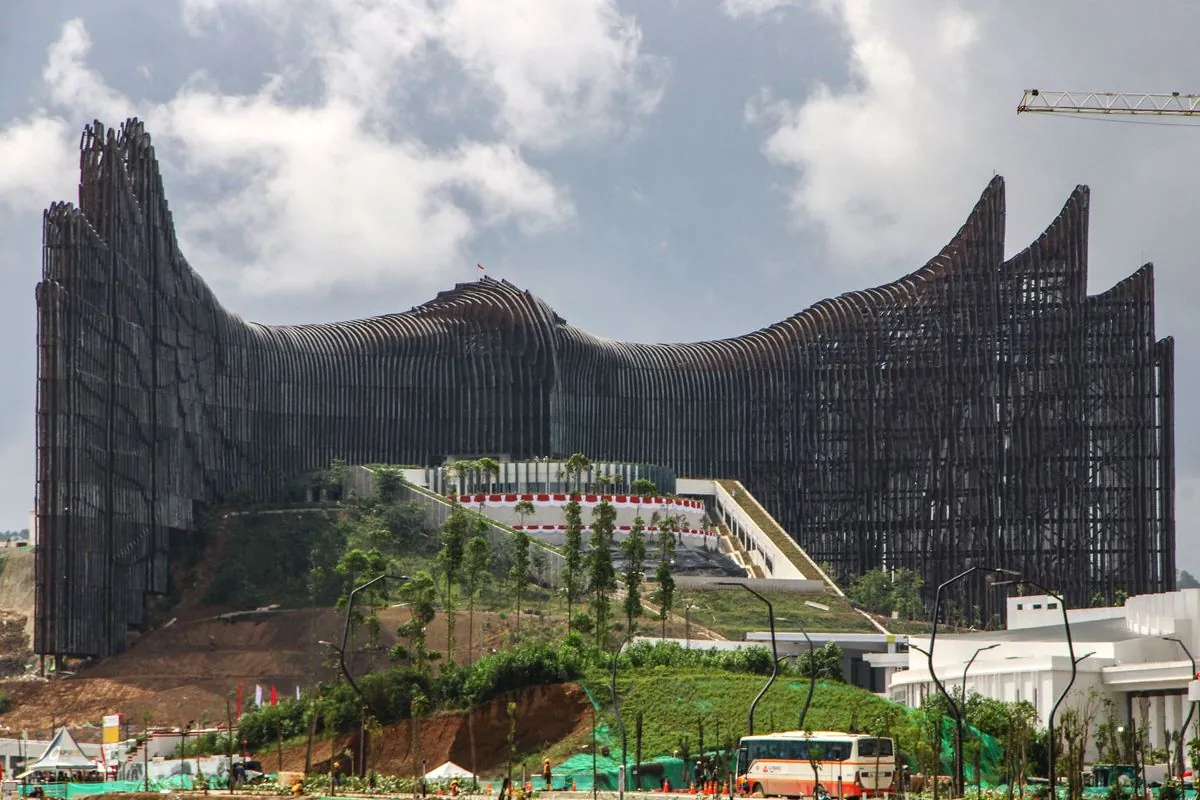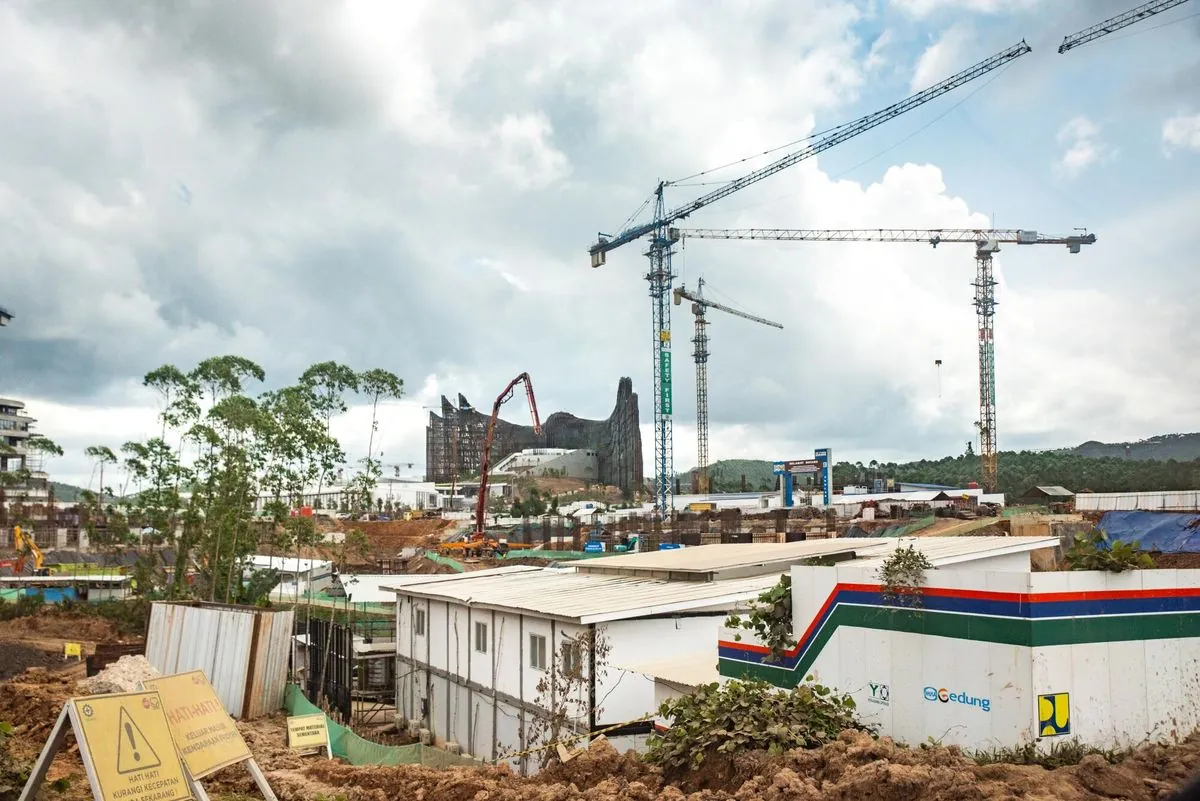Indonesia Marks Independence in Unfinished Capital Nusantara
Indonesia celebrated its 79th Independence Day in the incomplete new capital, Nusantara. The ceremony, held amid ongoing construction, highlighted challenges in the ambitious relocation project from Jakarta.

On August 17, 2024, Indonesia commemorated its 79th year of independence with a ceremony in Nusantara, the nation's future capital currently under construction. The event, held in the partially completed city on the island of Borneo, underscored both the country's aspirations and the challenges faced in this ambitious relocation project.
The celebration took place at the newly built Presidential Palace, designed to resemble the Garuda, a mythical bird-like creature from Hindu, Buddhist, and Jain mythology. President Joko Widodo and cabinet members attended the ceremony, which was conducted simultaneously with a celebration at the Merdeka Palace in Jakarta, presided over by Vice President Ma'ruf Amin.
The attendance at the Nusantara event was reduced from the initially planned 8,000 to 1,300 due to incomplete infrastructure. This adjustment highlighted the ongoing construction challenges faced by the project, which began in mid-2022. The new capital, spread over approximately 2,600 square kilometers, is being carved out of Borneo's ancient rainforest, estimated to be 140 million years old.
Indonesia's decision to relocate its capital stems from numerous issues plaguing Jakarta. The current capital, home to about 10 million people within city limits and thrice that in the greater metropolitan area, faces severe environmental and logistical challenges. Jakarta is sinking at an alarming rate of 25 cm per year in some areas, with projections suggesting that one-third of the city could be submerged by 2050 due to uncontrolled groundwater extraction and rising sea levels.

Nusantara is envisioned as a futuristic, environmentally friendly city powered by renewable energy sources. However, the project has faced criticism from environmentalists and Indigenous communities. Concerns have been raised about the impact on Borneo's ecosystem, particularly the endangered orangutan population, which has declined by more than 80% in the last 75 years.
The Indonesian government is actively seeking investors for Nusantara's development, with the private sector expected to contribute 80% of the $33 billion budget. To attract investment, President Widodo has offered incentives including extended land rights and tax benefits.
"Nusantara represents a new chapter in Indonesia's history, combining modern urban planning with our rich cultural heritage. We are committed to creating a sustainable and efficient capital that will serve as a model for future urban development."
As Indonesia, the world's largest archipelagic state with over 17,000 islands, moves forward with this monumental project, it faces the challenge of balancing progress with environmental conservation. The country, home to over 300 ethnic groups and 700 languages, must also ensure that the new capital reflects its diverse cultural tapestry.
With President Widodo's term ending in October 2024, the future of Nusantara's development remains a topic of national importance. As the world's 16th largest economy by nominal GDP and Southeast Asia's economic powerhouse, Indonesia's success in this endeavor could set a precedent for sustainable urban planning on a global scale.


































